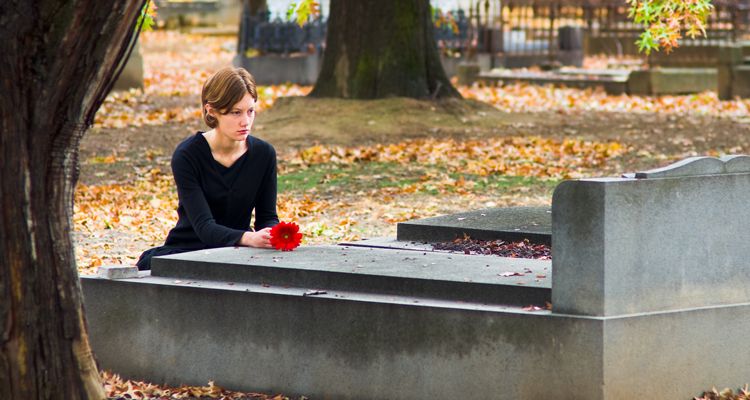10 Things To Do After A Death
It’s a difficult time, emotions are raw and there’s a lot to organize.

1. Report the Death
You must report a death to the proper authorities to begin the death certification process, which is jointly completed by a doctor or coroner and a funeral director. You’ll need multiple copies of the death certificate in order to do most of the tasks involved in disposition of the body, settling the estate, and wrapping up other affairs (like bank accounts and insurance).
- If you’re at a hospital, nursing home, or hospice, they will know what to do and can lead you through the proper steps, and will begin to complete the death certificate.
- If you’ve already been in touch with a funeral home, call them so they can get the process started.
- When you have no other options, call 911. Be aware that you’ll need a funeral director to claim the body for burial or cremation.
- If the person who died was an organ donor, inform the appropriate authorities so they can preserve the organs and prep them for donation.
For Hospital and End-of-Life Facilities: Clean out the Deceased’s Residence
If the person who died was living in a nursing home, assisted living facility, or hospice facility, there may be rules about how much time you have to remove the deceased’s personal property from his or her room. In order to avoid the potentially substantial charges that may result from insurance or Medicaid being discontinued.
2. Prepare To Work With A Funeral Director
You need to engage a funeral director to complete the death certificate and properly transport and store the remains. Most hospitals, nursing homes, and hospices require the removal of the body within a few hours after death.
Two questions you’ll need to answer:
- Will the body be buried or cremated?
- What type of funeral service will you be having?
If the person who died made funeral plans before death, work directly with the particular funeral home and be aware of any pre-payments so you don’t get double charged.
Speaking of money… As soon as a bank is notified of the death, any of the deceased’s accounts will be frozen until processed in probate. If you’ve been using their cash to pay their expenses, you may want to withdraw money from their bank account while you still can.
3. Types of Service: Funeral vs. Memorial vs. Graveside
A funeral is when you have a service before the body is buried or cremated.
A memorial service is when you have a service after the body has been buried or cremated.
A graveside service is just like a funeral only it takes place on the gravesite.
Regardless of the type of service, you’ll need to choose a location for the service (example: funeral home, church, synagogue, etc...) and, if appropriate, the burial (cemetery).
What If The Death Occurs Far Away From Home?
If the death occurred far away from where the burial will take place, you will need to work with a funeral director in the place the person died as well as a funeral director at the destination to make transportation arrangements.
If you are planning a cremation followed by a memorial service at a later date, the body can be cremated in the city where the person died and the cremated remains can be shipped to you. If you are planning a cremation that will take place after a funeral service, you'll need to work with funeral homes to coordinate the transportation of the body.
4. Make Cemetery Arrangements
If you are planning a burial, you'll need to decide where the burial will take place. If the person who died didn’t make cemetery arrangements (i.e., pre-purchased a plot) you will need to purchase a cemetery plot or a space in a mausoleum.
The funeral home you’re working with will likely be affiliated with one or more cemeteries, and they can help you find space in one. If you belong to a church, synagogue, or other religious group, they may be affiliated with a cemetery and can help connect you to the staff there, or facilitate the sale of a plot directly.
5. Make Funeral Arrangements
This is where the actual planning is a factor, for the funeral and any surrounding events for before or after the service.
Choose the Type of Service You'll Have
After you decide how you’re going to inter the body, you’ll need to decide if you want to have a ceremony around the interment—generally either a funeral (before the burial or cremation), a graveside service (at the interment), or memorial service (after the burial or cremation).
Decide if You’ll Be Having Any Pre- or Post-Service Events
Pre-funeral events generally include a viewing, wake, or visitation. Post-funeral events generally include receptions or gatherings. If you will be following religious traditions, those may help dictate these events. If you plan to have surrounding events, you will need to choose when and where they will take place.
Choose How the Body will Be Prepared (i.e. Open Casket)
Most funeral homes will require that a body be embalmed (a method of keeping the body in good condition) if there will be a viewing before the funeral or an open casket during the funeral.
Some cultures and religions feel that being able to see the person who died offers a sense of closure, while some prohibit embalming and therefore effectively prohibit open-casket ceremonies.
In some cases, depending on the cause of death, the cost and challenges of preparing the body to be viewed can be too great. While some funeral homes specialize in cosmetic restoration services, others may not have the resources to sufficiently prepare the body for viewing.
You must also decide what clothing you want the person who died to be buried or cremated in, along with other belongings you want to have buried with the person.
If the body will be cremated, keep in mind that any objects you'd like to save as keepsakes, such as jewelry or clothing, should be removed from the body prior to cremation.
6. Choose Cremation or Burial Products
If you're planning a burial, you'll need a casket and a burial vault or grave liner.
If you're planning a cremation, you'll need a cremation casket and an urn.
All of these products will be available at the funeral home or cremation service. If you’re looking to cut costs you can use online retailers.
7. Choose Formal Transportation
Transportation via hearse will be required to move the body from the funeral location to the cemetery, and the funeral home will provide and charge for this service. Transportation may be desired to get immediate family members from the funeral location to the cemetery in a funeral procession, and the funeral home can provide and will charge for this service, though you may also drive yourself.
Note: If you're working with a funeral home, the funeral director should be taking care of these arrangements.
8. Inform The Family and Write Death Notice
Depending on the method of notification that you’ll be using, you may need access to the deceased’s address book or email account. As these calls can be emotionally difficult, it can be helpful to develop a script, or jot down talking points, so you make sure you provide all necessary information.
Identify a point-person from each main social area of the deceased’s life (work, clubs, etc.) and ask that person to inform the other members of that group.
To get the word out to a larger audience, a death notice is a paid announcement you place in a newspaper or on a website that notifies people of the death and any services that will be held. [Dig Deeper: Checklist Writing A Death Notice or Obituary]
An obituary is an article written by a media outlet offering a biography of the person. Depending on the outlet, you usually have to lobby for coverage since it’s their call.
9. A Rundown of Possible Pre-Funeral Tasks
Prepare Yourself: Figure out what you’ll wear to the funeral. If you need to purchase an outfit or have an outfit dry cleaned, these are tasks that someone else may be able to handle for you.
Gather Personal Items: If a photograph or photographs of the person who died will be displayed at the service, collect those photos. If you will have a guestbook at the service, remember to bring the guestbook and pens.
10. Personalize the Funeral or Memorial Service & Reception
Choose an Officiant: If it’s taking place in a house of worship it will be a religious leader. It could also be a funeral director, or someone who has experience directing a funeral service.
Choose Speakers and Write Eulogies: Be prepared that some people may decline a request to speak. Also be prepared for requests to speak from people you did not consider. It’s entirely acceptable to decline if you feel there are enough speakers or if it would be inappropriate for other reasons.
Choose Pallbearers: If any people whom you would like to have as pallbearers are not physically capable of carrying the weight of a casket, those people can be made “honorary pallbearers” and can walk beside or behind the casket. [Learn More: Pallbearers]
Choose Readings and/or Music: If you would like people to deliver specific readings or prayers, choose those readings. If you will have a singer, choir, or band/ensemble perform at the service, or if you will be playing music, choose the songs or music you would like to have performed.
Create Programs: Funeral programs usually contain the order of the service (including the names of participants and any readings or musical pieces that are performed) as well as an obituary. If you’d like programs, the funeral home can do this for you as a cash advance.
Purchase a Guestbook: Guestbooks allow the family to know who attended the funeral, and you may purchase one from the funeral home or from a stationery store. Guestbooks are usually placed at the entrance to the service venue.
- How To Express Sympathy: What To Say And What...We’ve compiled a list of things to say—and things to avoid saying—when...Read more
- A Quick Overview Of Proper Funeral EtiquetteFunerals are emotionally complex, and knowing how to act can present a...Read more
- Paying Final Bills, Dues, And Estate ExpensesIn order to settle the estate, all outstanding bills and dues that the...Read more
- Funeral Pre-Planning Cheat SheetPlan now, rest later.Read more



